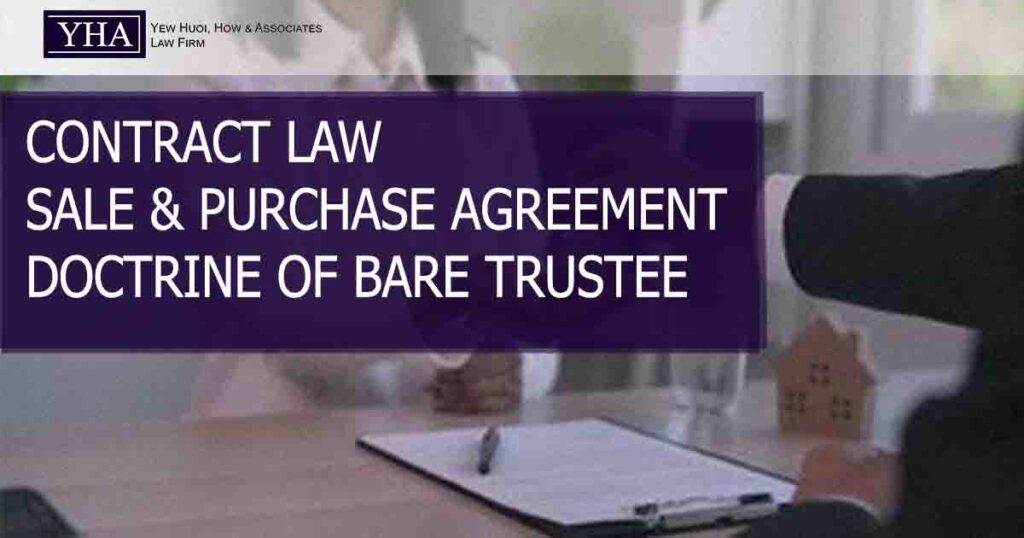I bought a unit of condominium from a developer. The developer was supposed to deliver separate strata title for my unit. That was not done. Years later, I discovered that the land of which the condominium was built was sold to Company Z. Can Company Z claim ownership of the condominium and later have me evicted?
- No. The developer who sold the condominium unit is merely holding the unit in trust for the purchaser.
- The developer is merely the registered proprietor of the undivided land which housed, inter alia, the condominium unit. In law, the developer is treated as a constructive trustee.
- The condominium unit is beneficiary owned by the purchaser who bought the unit pursuant to a valid sale and purchase agreement (“SPA”).
What is a constructive trust?
- A constructive trust is imposed by equity to satisfy the needs of justice and good conscience. It is a rule in equity which has the force of law.
- For example, when a purchaser has paid full purchase price for a property, the vendor is treated in law a constructive trustee even though the unit has not been formally registered in the name of the purchaser. The property might still be registered in the name of the vendor as trustee for the purchaser. This is known as the doctrine of bare trustee. The principle of fairness and good conscience dictates that the vendor cannot claim beneficial interest to the property after having benefitted from the payment of full purchase price.
- In the present instance, as constructive trustee, the developer is not allowed to sold the unit or the land that housed the unit to Company Z. Company Z cannot assert claim for beneficial interest for the unit which the developer does not have.
Can I apply for the Condominium Unit to be transferred to me later.
- Yes. You may apply for specific performance so that the condominium unit is transferred to your name when the strata title is issued.
- This is notwithstanding, the land now is registered in the name of Company Z.
If my SPA is signed 20 years ago, can Company Z rely on Limitation Act to defeat my application?
- It depends whether the formal request to transfer has exceeded 6 years of limitation. If you have only requested for the unit to be transferred now, time would only start to run now. Limitation would not have set in.
(Case in Point: Pihak Berkuasa Kemajuan Pekebun Kecil Perusahaan Getah (RISDA) v Koperasi Ladang Pekebun-Pekebun Kecil Malaysia Bhd [2022] MLJU 255)

